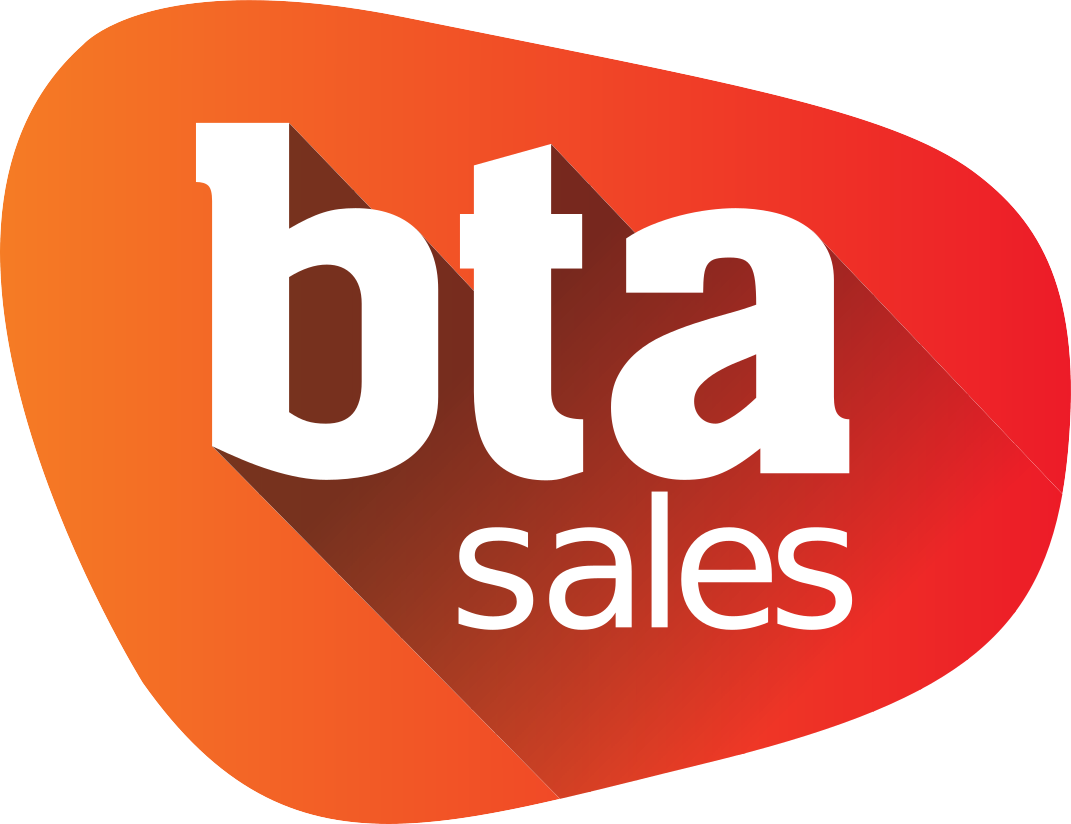Resources
THE 8 QUALITIES OF THE WORLD’S BEST SALESPEOPLE – AND HOW TO IDENTIFY THEM AT INTERVIEW

February 27, 2020
Here at bta Sales, we love sales!
Some might call us obsessed…. But we like to think of ourselves as passionate.
We spend all of our days meeting with sales industry experts and discussing their highs and lows in sales.
This connection with Australia’s sales leaders gives us a front row seat to see both those that succeed and those that fail.
Over time we have seen some common patterns and consistent qualities of the top sales performers. Those raw, innate qualities that make salespeople great.We made a list of all the qualities that make salespeople great, and then we put our heads together and thought about a few simple questions that we can use to help identify the world’s best salespeople at interview.
And we’d like to share these insights with you below.
Curiosity
The best salespeople show curiosity in all their interactions. They want to know what it takes for their customers to succeed and they listen more than they talk. They dig deep into the industry they work in and build a broad knowledge of their field rather than relying on light product knowledge with nothing more substantive in reserve.
Potential Interview Questions
- Tell me about your favourite client’s business? What are their major objectives and challenges?
- Let’s do a quick role play: I’m thinking about moving to a new suburb. Sell me on why I should move to where you live?
- “You are due to meet with the purchasing manager of ABC Corp; it’s your first meeting with them. How do you prepare?”
- “Give us an example of when you did deep research on an issue and what was the result of that research?”
Positive Signs
- They have taken an active interest in the desires and needs of their clients previously
- When roleplaying a sales process, they first seek information before presenting a solution tailored to the discovered information
- They establish that the first step is the need to learn more before acting
- They have ideas as to where they can get information from
Negative Signs
- They are keen to “wing it” and take action immediately
- They are more interested in talking than listening
Resilience
Sales is a hard job and it comes with its ups and downs. Great salespeople can dig deep inside and deal with those problems without making mountains out of molehills.
They know that they will face regular rejection and can handle it, if not welcome it. They are comfortable dealing with uncertainty and ambiguity for much of the time.
Potential Interview Questions
- When was the last time that a prospect said no to you? What did you learn from that?
- What was the most frustrating day of your sales career to date? Why?
- Have you ever missed a sales target or a personal target? How did you react to that?
- What everyday thing in your work drives you a little crazy and why?
Positive Signs
- Willing to accept personal accountability
- A willingness to learn from failure and not be deterred by it
Negative Signs
- A refusal to acknowledge any problems in the past
- Glib answers that turn failures into successes
Persistence
It’s important to remember that there’s a difference between being persistent and being obnoxious. Sales superstars are politely persistent and dogged in pursuit of their goal without becoming an irritant in the process. They appreciate the need to gain and maintain a prospect or customer’s attention without trying to dominate or monopolize that attention.
Interview Questions
- Tell me about a time when you refused to take “no” for an answer?
- How do you keep your prospects aware of developments in the field?
- What steps would you take to ensure that a prospect in the middle of a long decision making cycle was kept in the loop?
- When do you think that it’s appropriate to give up on a prospect?
Positive Signs
- An indication of a planned & structured process for following up
- A tacit understanding that there is a limit to how much you can push a prospect too
Negative Signs
- A casual attitude to keeping on top of a relationship
- A sense of persistence which borders on harassment
Responsibility
The best people of any stripe not just sales are those that understand their responsibilities and endeavour to live up to them. They do not shirk or shy from the understanding that they are in charge of their own destinies and that it is not fate which will propel them to achieve targets but themselves.
They seek not to excuse what has gone wrong but rather to learn and to ensure that it never goes wrong again.
Interview Questions
- Tell me about a time that you failed in what you set out to do. What did you afterwards?
- When was the last time that someone you worked with became annoyed with something that you had done? Why was that? What did you do about it?
- If you realized that you were going to miss your quarterly target what steps would you take next?
- Can you explain what you did last time something went very wrong during the course of a sale?
Positive Signs
- An acknowledgement that things do go wrong
- A sign that they accepted responsibility and took steps to prevent something similar going wrong in the future
Negative Signs
- A refusal to acknowledge that anything has ever gone wrong in their life
- A lack of planning or process to put things right
- Blaming others for problems rather than accepting responsibility
Conscientiousness
Customers and colleagues alike expect to be able to rely on the salesperson they interact with. That means that the top performers will pay attention to the details.
They know that they have to follow up when they commit to following up and that they must prepare for meetings and presentations. They spend time engaged in research to deliver holistic, high-value proposals and interactions.
Interview Questions
- When do you think the best time is to follow up with a customer after a meeting?
- Can you walk me through the process that you use to prepare for a presentation to a prospect?
- You promised a customer some data on a Friday but it won’t be released by the supplier until the following week, what do you do next?
- How do you make sure that you have all the important information to hand when you need it in a customer interaction?
Positive Signs
- A clear process for recording important details
- A clear plan for actions which is easy to execute
Negative Signs
- “I keep things in my head”
- A reliance on other people within their environment to keep them on track
Adaptability
When things aren’t going according to plan or there’s a little something extra needed, the stellar salesperson is adaptable and resourceful. They aren’t afraid to roll up their sleeves, get their hands dirty and be both creative and innovative in their search for solutions.
They apply the same level of dedication in both customer interactions and with their colleagues. They know that success is a team effort.
Interview Questions
- It’s Friday afternoon and your prospect calls and needs a ton of extra information. You’re due to attend to an important personal matter in the evening and can’t do the work and get the personal matter handled. What do you do?
- You’re sat in a meeting and the prospect presents you with a problem that you’ve never seen before, what do you do?
- A colleague comes to you and says that they’re worried about the deal they’re working on and could you help them get back on track? How would you approach helping?
Positive Signs
- Evidence of a process in place to tackle problem-solving
- Creative approaches including involving others
Negative Signs
- An insistence that they can handle everything themselves
- No planning or process but a tendency to “think on their feet” as it’s required
Honesty
Your business has a reputation to manage and you can’t squander it needlessly. If you’re thinking of hiring someone who is dishonest, you may make short-term gains but in the long-term, you’ll lose every single time. Salespeople should value their and your reputation.
They should work to do the best for their customers every single time they interact with them and know that the long-term payoff is worth short-term sacrifices.
Interview Questions Things To Watch For
- Can you give me an example of when you explained to a client or prospect that you couldn’t fulfil their needs?
- Can you tell me about a time when you had to deliver a truthful message that made you uncomfortable?
- You have a friend working for a prospective client. They phone and give you the details of a competitor’s bid for the prospect’s work. What do you do?
- It’s clear to you that the prospect’s decision maker isn’t really up to speed with the industry and you can make a lot of extra cash by substituting old models in your quotes without mentioning it, how do you handle this?
Positive Signs
- An acknowledgement that telling the truth is not always easy
- An ethical and honest process relevant to the individual’s status within an organisation'
Negative Signs
- A willingness to cut corners for personal gain
- A view that truth is malleable when necessary
Focused
People can’t hit their targets consistently if they’re not looking at them. Your top salespeople will always have their eye on the ball and know exactly where they are in relation to their objectives.
They’ll actively plan to beat their targets rather than scrambling for ideas on the last day of the month.
Interview Questions
- How do you deal with distractions at work?
- What’s your current sales target and how close to reaching it are you?
- What do you believe is the way to consistently exceed targets?
Positive Signs
- Able to deal with distraction in a positive manner
- Has a very clear picture of their current position
Negative Signs
- Is prone to being easily distracted or has no clear strategy for handling distractions
- Is unsure of where they are or is obstructive about revealing their position
Caring
People like people who are like themselves says the truism. In truth, people like people who care about them. The right path to success is one which places the best outcomes for everybody at the fore.
Salespeople who care about their customers, their colleagues and the company are always going to project the right image to others.
Interview Questions
- What’s more important to you? Ensuring that a customer meets their objectives or that you meet your sales target?
- If a colleague comes to you for help with a project and you have no spare capacity, how do you handle that?
- Can you walk me through a time when you demonstrated caring for the company you worked for?
Positive Signs
- An ability to balance caring for others with caring for themselves
- A clear understanding of the difference between care and compassion and becoming a doormat
Negative Signs
- A lack of concern for others
- Too much concern for others at their own expense
Share This Post
